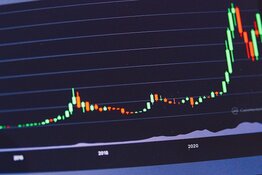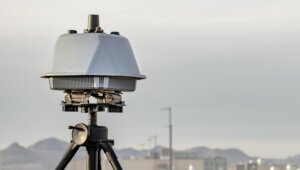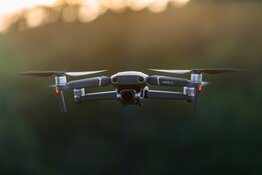Rakovina Therapeutics Inc. (RKV:TSX.V) and Saudi-based NanoPalm Ltd. have signed a non-binding Letter of Intent to form a joint venture focused on advancing oncology drug candidates discovered using artificial intelligence. The initial focus will be on kt-3283, a dual PARP-HDAC inhibitor that targets DNA damage response pathways commonly altered in cancer.
Rakovina will contribute its AI-discovered drug candidates and validation expertise, while NanoPalm will provide its patterned lipid nanoparticle (pLNP) delivery platform, biomanufacturing capabilities, and clinical support infrastructure in Saudi Arabia. The joint venture plans to co-develop small-molecule oncology therapeutics, with kt-3283 as the first candidate formulated using NanoPalm's precision pLNP delivery system.
Rakovina's Executive Chairman, Jeffrey Bacha, described the partnership as a strategic alignment of technologies, stating in the news release, "This collaboration brings together complementary expertise in drug discovery and delivery technologies. kt-3283 represents the first of what we believe could be multiple novel therapeutics that emerge from this alliance, offering a robust pipeline for development and future commercialization."
kt-3283 has shown enhanced cytotoxicity in preclinical models of Ewing sarcoma, breast cancer, and ovarian cancer. By targeting both PARP and HDAC simultaneously, the compound has demonstrated increased DNA damage and disruption of cell cycle progression. The companies aim to validate these effects through further pharmacology, toxicology, and in vivo testing using Rakovina's laboratory infrastructure at the University of British Columbia.
The joint venture will be domiciled in Saudi Arabia with a global development and commercialization mandate. Both companies will co-fund the venture and may pursue third-party investment and grant opportunities. Regulatory alignment is planned with international standards, including those of the FDA, EMA, and SFDA. Intellectual property developed through the collaboration will be jointly owned, while each party retains ownership of its background technology.
AI-Powered Oncology: A Rapidly Evolving Sector
According to an August 13 report from the World Economic Forum, healthcare has remained "below average" in its adoption of AI compared to other sectors, despite the growing need for scalable solutions in medical innovation. The organization stated that "AI digital health solutions hold the potential to enhance efficiency, reduce costs, and improve health outcomes globally." The same report emphasized that AI is already improving areas such as triage, fracture detection, and disease diagnosis, but it noted that broader adoption across health systems remains a work in progress.
Parallel advancements have been seen in imaging and diagnostics. On the same date, researchers at The Hong Kong Polytechnic University detailed the development of AI-powered virtual MRI tools for safer tumor detection, particularly for nasopharyngeal carcinoma. Their research eliminated the need for contrast agents, which can pose risks, and instead used deep learning to synthesize detailed imaging from contrast-free scans. Professor Jing Cai, who led the study, highlighted that their new model "offers a safer and smarter diagnostic approach," improving imaging quality without the potential side effects of gadolinium-based contrast agents.
Meanwhile, the market landscape continues to evolve to support these innovations. In its August 13 market overview, Coherent Market Insights projected significant growth in the artificial intelligence in oncology segment, supported by advancements in AI platforms, investment in AI infrastructure, and increased demand for precision medicine. The report found that both software platforms and service-based models were gaining traction, especially in hospital, diagnostic center, and biopharma settings. The firm noted that AI tools are increasingly used across treatment modalities, including chemotherapy, radiotherapy, and immunotherapy.
Analyst Notes R&D Activity and Financial Developments
In a June 6 research update, Dr. Douglas Loe, Managing Director and analyst at Leede Financial Inc., reviewed Rakovina Therapeutics Inc.'s financial and research progress. He reported that the company held CA$100,000 in cash at the end of Q1 2025, with that figure expected to rise pending the close of a previously announced CA$4 million equity financing. Dr. Loe indicated that the anticipated funds would likely support Rakovina's continued research and development initiatives centered on its artificial intelligence–enabled drug discovery programs.
Rakovina's CA$900,000 R&D expenditure for the quarter was described by Dr. Loe as consistent with its stage of development, especially in light of its partnerships with the University of British Columbia and Variational AI. He noted the company's focus on identifying small molecules that inhibit PARP1 or PARP2 in combination with other DNA repair pathway targets. Among those, he highlighted ATR, a kinase linked to the PI3K enzyme family that has been targeted by approved therapies.
AI Platforms, Therapeutic Pipeline, and Sector Positioning
Using the Deep Docking and Enki platforms, the company can screen billions of molecules against cancer-related targets and rapidly identify promising candidates. This approach reduces the time and cost associated with traditional drug discovery timelines.
As outlined in the company's investor materials, kt-3283 is one of several DNA damage response inhibitors in Rakovina's pipeline, which includes selective inhibitors of PARP-1 and ATR. These targets are relevant in tumors with DNA repair deficiencies, which are present in approximately 75 percent of solid cancers. The company is also pursuing brain-penetrant compounds that address metastatic disease in the central nervous system.
With an integrated model that combines AI modeling, wet lab validation, and in-house development, Rakovina is positioned to deliver drug candidates ready for clinical partnerships. The company's upcoming milestones include data readouts from multiple programs and the advancement of additional AI-derived candidates into preclinical stages. Recent industry activity has demonstrated strong interest in DNA damage response therapies, with over US$25 billion invested in related transactions by major pharmaceutical companies in recent years.
The joint venture with NanoPalm aims to leverage this momentum by combining discovery and delivery innovations to advance cancer therapeutics on a global scale.
 Streetwise Ownership Overview*
Streetwise Ownership Overview*
Rakovina Therapeutics Inc. (RKV:TSX.V)
Ownership and Share Structure
Edison Oncology owns 12% of Rakovina Therapeutics.
Management and Reporting Insiders own 4%, with the top two being Jeffrey Bacha and Alfredo De Lucrezia.
The rest is friends/family and retail.
Rakovina Therapeutics recently announced a 10:1 share consolidation, effective on June 24, 2025.
This means that for every 10 pre-consolidation common shares, shareholders now hold one post-consolidation common share.
Rakovina Therapeutics Inc. has 21 million shares outstanding and a market capitalization of approximately CA$14.569 million. Over the past 52 weeks, its stock has traded between CA$0.40 and CA$2.30.
| Want to be the first to know about interesting Technology investment ideas? Sign up to receive the FREE Streetwise Reports' newsletter. | Subscribe |
Important Disclosures:
- Rakovina Therapeutics has a consulting relationship with Street Smart an affiliate of Streetwise Reports. Street Smart Clients pay a monthly consulting fee between US$8,000 and US$20,000.
- As of the date of this article, officers and/or employees of Streetwise Reports LLC (including members of their household) own securities of Rakovina Therapeutics.
- James Guttman wrote this article for Streetwise Reports LLC and provides services to Streetwise Reports as an employee.
- This article does not constitute investment advice and is not a solicitation for any investment. Streetwise Reports does not render general or specific investment advice and the information on Streetwise Reports should not be considered a recommendation to buy or sell any security. Each reader is encouraged to consult with his or her personal financial adviser and perform their own comprehensive investment research. By opening this page, each reader accepts and agrees to Streetwise Reports' terms of use and full legal disclaimer. Streetwise Reports does not endorse or recommend the business, products, services or securities of any company.
For additional disclosures, please click here.








































